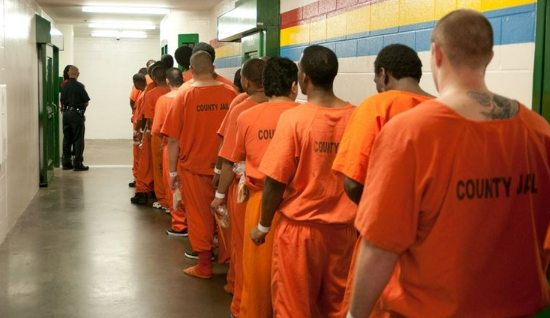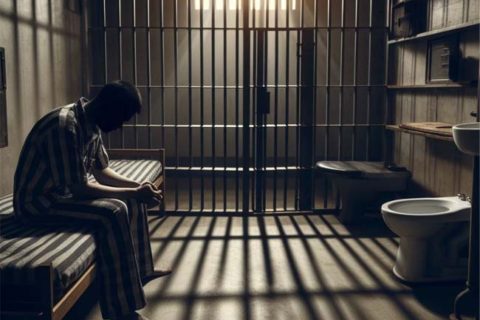People wherever they are need to have good mental health. Inmates also have the right to having good mental health. When they are in prisons, they should be given something that can improve their mental health. But the question is, how can prisons improve mental health? You are able to read about how prisons can improve mental health below.
Recommendations for Improving Treatment for Mentally Ill Inmates
According to the Treatment Advocacy Center, here is the explanation about the recommendations for improving treatment for mentally ill inmates.
There are a large number of seriously mentally ill inmates and they will accept medication voluntarily. The other inmates who are not aware of their own illness will not accept medication voluntarily. It is because they think that there is nothing wrong with them.
If prisons fail in treating mentally ill inmates, they will be harmful and even can be something tragic. If there is no intervention, symptoms will worsen where it will lead the inmates to behave in disruptive and bizarre ways and they will become vulnerable to be beaten or they can be victimized, to mutilating themselves or committing suicide.
To improve the situation, it is started with the general premise that inmates with severe mental disorders who need treatment must be in hospitals, not in jails and prisons.
One of the solutions from this issue is that there needs to be an adequate number of public psychiatric beds for the stabilization of mentally ill inmates. It also involves a fundamental realignment of the public mental illness treatment system where public mental health officials at the state and county level are responsible for any failure of the system of the treatment. As explained on the Treatment Advocacy Center, here are some interim recommendations.
- Prison and jail inmates with serious mental illness need to be given appropriate treatment.
- Jail diversion programs need to be implemented and promoted.
- The use of assisted outpatient treatment (AOT) needs to be promoted.
- Cost studies need to be encouraged.
- Careful intake screening needs to be established.
- Release planning must be mandated.

The Benefits of Looking After Your Mental Health as An Inmate
As explained on the Mental Health Foundation site, mental health is about the way you think and feel and your ability to deal with ups and downs. If you can look after your mental health in prison, you can do the things mentioned below according to the Mental Health Foundation site.
- You will be able to cope better with life in the environment of the prison.
- You will be able to make positive changes to improve your wellbeing.
- You will be able to build better support networks with family, other inmates and professionals who can help.
Mental health of everyone fluctuates and everyone also has their own time when they feel down, stressed or frightened. Usually, these feelings pass. However, sometimes they can develop into a more serious problem. In prison, self-harm is a serious issue. The statistics show that self-harm is higher for women than men in prison. However, whatever your gender is, if you have self-harm issues, you have to ask for support from the mental health team.
Examples of Interventions Used for Inmates in Incarceration Settings
According to effectivehealthcare.ahrq.gov, here is the explanation about the examples of interventions which are used currently in incarceration settings.
- Individual and group psychotherapy
In jails, prisons, or forensic hospitals, psychological therapies which are provided may include cognitive behavioural therapy (CBT, with or without criminal thinking curriculum) and dialectical behaviour therapy (DBT). The aim of CBT is to build cognitive skills and replace distorted cognitions (self-justificatory thinking, displacement of blame, schemas of dominance and entitlement) with noncriminal thought patterns. - Psychopharmacologic therapies
If inmates with SMI, antipsychotic, antidepressant, and mood-stabilizing are housed in a correctional facility, medications must be included in the medication formulary. All correctional formulary policies need to include a mechanism to access non-formulary medications on a case-by-case basis to ensure access to appropriate treatment for serious mental illness. However, particular conditions in correctional facilities such as high rates of substance use disorders require that formularies limit or exclude medications that have a high potential for misuse or abuse. In most correctional facilities, a psychiatrist and other mental health professionals need to be involved in the development of the formulary of the institution. - Specialized housing
It includes self-contained mental health units for caring inmates with SMI who cannot function in the general population. The options of specialized housing can vary from facility to facility. However, it must include inpatient care, short-term crisis beds, and long-term residential units. - Integrated dual disorders treatment (IDDT)
The similar treatment team treats addiction and SMI simultaneously. The treatment of substance abuse is adjusted to people with mental illness. People are taught how mental health and substance abuse disorders interact and this approach uses CBT. - Telemedicine/ telepsychiatry
Now, telemedicine is a common mode of delivery for psychological/ and psychiatric services. If this method is used, the treatment is delivered through a videoconferencing.
Mental Health Services Provided to Offenders with Serious Mental Illness in Incarceration Settings
According to effectivehealthcare.ahrq.gov, here is the explanation about providing mental health services to offenders with serious mental illness in an incarceration setting.
Jails are operated facilities locally where they usually provide pretrial detention and short-term confinement after sentencing which is usually less than one year. Usually, mental health services which are provided in jails focus on identifying mental illness, crisis management, and short-term treatment. Steadman and Veysey in their study of American jails found that the mental health services provided in jails varied depending on the facility size.
Prisons are correctional facilities that hold sentenced inmates for more than one year and these are operated by Federal and State governments or by private companies. Here, the responsibility of providing mental health services varies. In some states, according to Veysey, psychiatric care is provided under the auspices of state mental health facilities, and in others, under the auspices of the state corrections authority. Often, mental health services in Federal and State prisons are contracted out.
Usually, prisons provide a greater range of mental health services than shorter term settings because the incarceration of the inmates can last for years. The services of mental health in prisons usually parallel those available in the community and psychological counselling, treatment of trauma-related symptoms, integrated treatment for co-occurring mental health and substance use disorders, and psychiatric medication management are included.

A bookworm and researcher especially related to law and citizenship education. I spend time every day in front of the internet and the campus library.




